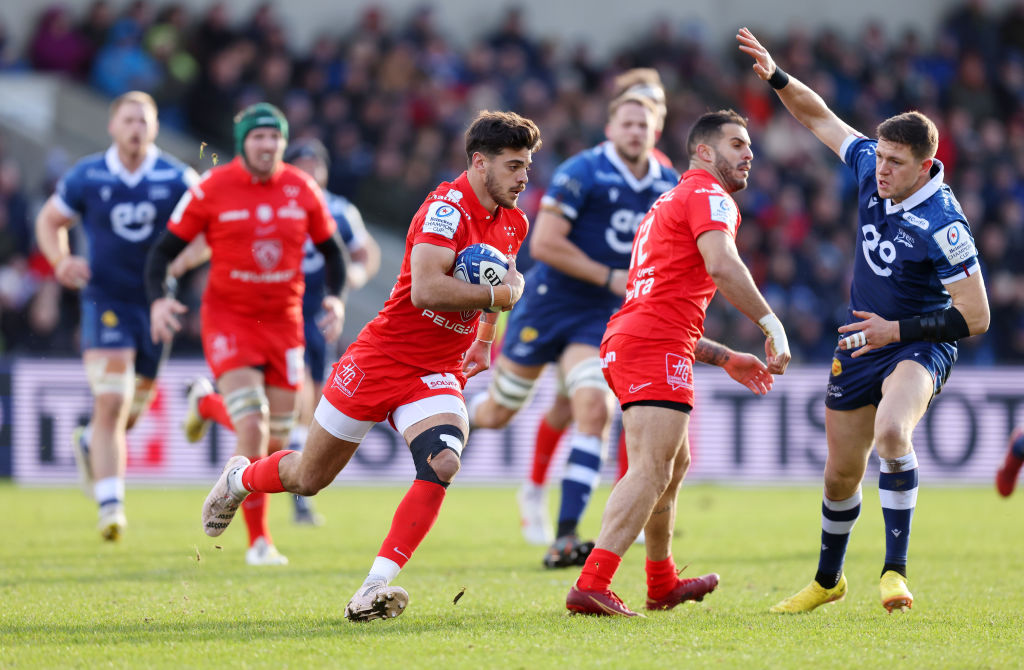MLR’s Utah Warriors CEO: Rugby needs to put commercialism first

If you were looking for a nation to grab something traditional by the horns and zhuzh it up, it would be the United States wouldn’t it? Well, now rugby is entering the rodeo ring to have that treatment. Because last month, Major League Rugby (MLR) franchise Utah Warriors announced a partnership with five-time European champions Toulouse which they have termed “The Rugby Alliance”.
And the chief executive and co-founder of the MLR team, former US international scrum-half Kimball Kjar, tells City A.M. about the plans to expand beyond the Top14 side.
“It’s long-term,” he says. “Call this overly grandiose or biting off more than what people possibly can consider and chew but this alliance is not just about the Warriors and Toulouse, it’s finding like-minded professional clubs that want to continue to innovate and create new opportunities commercially on a global scale.
MLR-Top14-URC partnership?
“So in some way, shape or form I would like to see this expand to bring on a Premiership [English] team, to bring on a URC [United Rugby Championship] team, to bring on a Super [Rugby] team, and then a Japanese League One team for a variety of things.
“It could be a North American exhibition series, it could be a worldwide competition where we’re sharing Under-18, Under-20 and development pathway opportunities or creating sort of a unified academy in the Polynesian domain based out of Hawaii – that’s been something that’s been discussed.”
The partnership marks an important step for rugby in the United States given they will be hosting the men’s Rugby World Cup in 2031 and its women’s equivalent in 2033.
And while Kjar doesn’t hide that this is a commercial partnership before a rugby one, it’s an ambitious admission of how rugby must change and adapt to a changing world.
The ex-US Eagle described the potentially expanded conglomerate as a content media company, whereby the various clubs could pool assets and brands together – almost like a sporting portfolio such as Ineos or City Football Group, but where each brand maintains its own ownership and identity.
But the Warriors received some pushback initially from a number of clubs including, surprisingly, in the Premiership where a desire to expand and grow commercially has been at the forefront of many.
Sugar daddy
“If I’m being completely candid I didn’t know if this would resonate with people,” Kjar adds. “When we first went over there [Europe] back in April or May of last year, we met with a series of URC teams, we met with some Premiership teams, we met with a series of Top14 and ProD2 [French second division] teams.
“We had favourable conversations but what ended up happening in most instances was: ‘Well, you guys are with the MLR you know, whatever’, then pat us on the head and sent us on our way.
“But when we met with the Toulouse guys, I didn’t really have high expectations. Just because Toulouse is Toulouse.
“When we sat in the meeting, they and Didier [Lacroix, Toulouse president], caught and understood what it was that we were trying to do.
“We saw the synergies there, and they caught the vision of growing. They don’t just have a sugar daddy owner, it’s still very much a community based asset, they still have a board for the board for the board that they have to report back to and they are still very much, dare I say, a community team.”
We have seen partnerships in rugby before: in 2019 Scotland Rugby took a 30 per cent stake in MLR side Old Glory DC, Gloucester Rugby Academy last year launched a project with Kingswood College in South Africa and Northampton Saints’ community asset is working with Chilean rugby.
But this is different, a kind of cooperative. And while there will be a number of questions for a number of years about what success looks like between Utah, Toulouse and others, no one can bemoan a couple of clubs giving something new a go knowing the future of rugby is likely going to focus on increased commercialism.